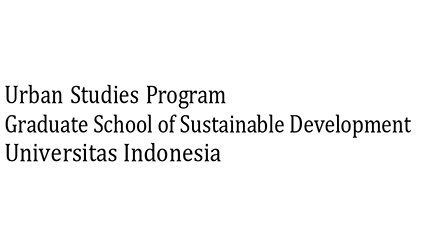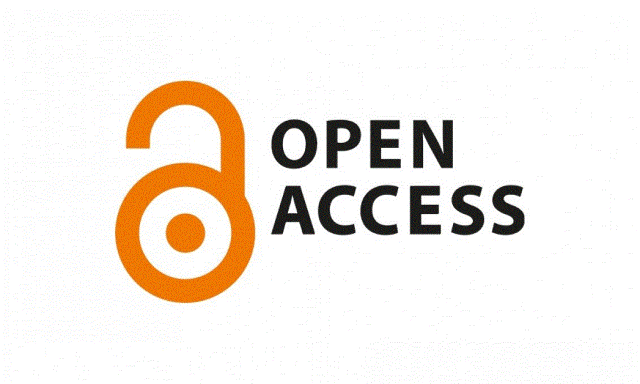Abstract
Background: In discussing consumption and the environment as part of social change, Malang City and Regency become a study of the relationship between the state and civil society in efforts to overcome the challenges of climate change, one of which is the waste problem. Unfortunately, less attention to analyze how and why civil society supports the global development agenda.
Aims: This article attempts to discuss the intersubjective factors that encourage the role of civil society in supporting the achievement of sustainable urban development targets.
Methods: The research applies qualitative methods with content analysis referring to primary data sourced from interviews, observations, social media content and government publication documents accessed online. Secondary data was obtained from literature studies and analysis of news articles.
Results: Through a constructivist perspective, the 'zero waste living' community is believed to act as a creative class and norm empowerment to support the realization of a sustainable city. The process of institutionalization and norm diffusion occurs in the interaction and communication of community networks at all levels of activity.
Conclusion: There is a process of internalization of the norm of 'your trash is your responsibility' and the principle of 'prevent-sort-process' in intensive communication and interaction networks in interconnected areas, both in environmental activist community forums, student guardian/student guardian friendship forums, and citizen/ Family Empowerment and Welfare (PKK) forums.
References
Ana Rahmalia and Saprudin, S. (2023) ‘Table Manner Masyarakat Jepang sebagai Bentuk Penerapan Ajaran Konfusianisme di Asia Timur’, Satwika : Kajian Ilmu Budaya dan Perubahan Sosial, 7(2), pp. 308–319. Available at: https://doi.org/10.22219/satwika.v7i2.26404.
DKP (2013) Pengelolaan Sampah di Kota Malang, Laporan Dinas Kebersihan dan Pertamanan Pemerintah Kota Malang. Kota Malang. Available at: https://www.scribd.com/doc/310320957/Pengelolaan-Sampah-Di-Kota-Malang.
Faradila, R. and Andi, A. (2023) ‘Integrasi Nilai-Nilai Batagak Penghulu Pada Pembelajaran Sejarah di Sekolah’, Satwika : Kajian Ilmu Budaya dan Perubahan Sosial, 7(2), pp. 361–372. Available at: https://doi.org/10.22219/satwika.v7i2.27541.
Febrianto, V. (2022a) ‘Pemkot Malang siapkan danau buatan untuk minimalisasi risiko banjir’, Antaranews, 13 April. Available at: https://www.antaranews.com/berita/2819661/pemkot-malang-siapkan-danau-buatan-untuk-minimalisasi-risiko-banjir.
Febrianto, V. (2022b) ‘Relawan di Kabupaten Malang gunakan eco enzyme untuk penanganan PMK’, Antaranews, 17 June. Available at: https://www.antaranews.com/berita/2945353/relawan-di-kabupaten-malang-gunakan-eco-enzyme-untuk-penanganan-pmk.
Febrianto, V. (2023) ‘Pemkot Malang fokus pembangunan infrastruktur berkelanjutan pada 2024’, Antaranews, 16 February. Available at: https://www.antaranews.com/berita/3399126/pemkot-malang-fokus-pembangunan-infrastruktur-berkelanjutan-pada-2024.
Feldman, D.L. (2012) ‘The future of environmental networks-Governance and civil society in a global context’, Futures, 44(9), pp. 787–796. Available at: https://doi.org/10.1016/j.futures.2012.07.007.
Fisher, D.R. and Green, J.F. (2004) ‘Understanding Disenfranchisement: Civil Society and Developing Countries’ Influence and Participation in Global Governance for Sustainable Development’, Global Environmental Politics, 4(3), pp. 65–84. Available at: https://doi.org/10.1162/1526380041748047.
Gaventa, J. (2005) ‘Reflections on the Uses of the “Power Cube” Approach for Analyzing the Spaces, Places and Dynamics of Civil Society Participation and Engagement’, Institute of Development Studies, 4(October 2005), pp. 1–45. Available at: http://www.partos.nl/uploaded_files/13-CSP-Gaventa-paper.pdf.
Kemenparekraf (2021) Indonesia Menjadi Inisiator Tahun Internasional Ekonomi Kreatif Dunia, Kemenparekraf.go.id. Available at: https://kemenparekraf.go.id/ragam-ekonomi-kreatif/Indonesia-Menjadi-Inisiator-Tahun-Internasional-Ekonomi-Kreatif-Dunia?utm_source=Facebook, Instagram&utm_medium=Ads&utm_campaign=TrafficGSF&fbclid=IwAR1whpEnkGuUJ2b6c5gFLnI3yrfRkUzWMTExmzr6wJxCPMoulTvJsfkD (Accessed: 14 March 2022).
Kementerian PUPR (2004) ‘Sampah Masih Menjadi Kendala di Perkotaan’, 24 August. Available at: https://pu.go.id/berita/sampah-masih-menjadi-kendala-di-perkotaan (Accessed: 27 August 2023).
Kemlu RI (2020) ‘Indonesia Pimpin Persiapan Tahun Internasional Ekonomi Kreatif Dunia 2021’, Kementerian Luar Negeri Republik Indonesia, 13 November. Available at: https://kemlu.go.id/portal/id/read/1872/berita/indonesia-pimpin-persiapan-tahun-internasional-ekonomi-kreatif-dunia-2021 (Accessed: 13 March 2022).
Koto, N.F. and Priyoyudanto, F. (2023) ‘Peran wanita Arab Saudi dalam Perubahan Model Abaya Pasca Reformasi Mohamed bin Salman’, Satwika : Kajian Ilmu Budaya dan Perubahan Sosial, 7(2), pp. 396–403. Available at: https://doi.org/10.22219/satwika.v7i2.27997.
Kurniawan, K. (2022) ‘Sampah Masih Menjadi Persoalan di Kota Malang, Ini Langkah yang Dilakukan DLH Kota Malang’, Tribun Jatim, 30 January. Available at: https://jatim.tribunnews.com/2022/01/30/sampah-masih-menjadi-persoalan-di-kota-malang-ini-langkah-yang-dilakukan-dlh-kota-malang.
Kusumaningrum, D.N. (2016) ‘Pengaruh Perspektif Pemberdayaan Perempuan dalam Kebangkitan Ekonomi Lokal: Industri Tempe Sagu di Dusun Mrisi-Yogyakarta’, INSIGNIA, 3(2), pp. 26–37. Available at: http://jos.unsoed.ac.id/index.php/insignia/article/view/470/384.
Liputan6.com (2022) ‘Relawan Penanganan PMK di Malang Gunakan Eco Enzym, Dampaknya?’, 18 June. Available at: https://www.liputan6.com/surabaya/read/4989554/relawan-penanganan-pmk-di-malang-gunakan-eco-enzym-dampaknya?page=2.
Marlinah, L. (2017) ‘Meningkatkan ketahanan ekonomi nasional melalui pengembangan ekonomi kreatif’, Cakrawala - Jurnal Humaniora, 17(2), pp. 258–265. Available at: https://ejournal.bsi.ac.id/ejurnal/index.php/cakrawala/article/view/2488/1811 (Accessed: 3 May 2021).
McDuie-Ra, D. and Rees, J.A. (2010) ‘Religious actors, civil society and the development agenda: The dynamics of inclusion and exclusion’, Journal of International Development, 22(1), pp. 20–36. Available at: https://doi.org/10.1002/jid.1537.
Muhammad, F. (2020) ‘DK Wardhani: Melindungi Lingkungan dengan Rumah Tangga Minim Sampah’, National Geographic Indonesia, 25 April. Available at: https://nationalgeographic.grid.id/read/132121929/dk-wardhani-melindungi-lingkungan-dengan-rumah-tangga-minim-sampah?page=all.
Pemkot Malang (2019) ‘Kota Malang Masuk Sepuluh Nominasi Kota Kreatif Indonesia’, Bidang Komunikasi dan Informasi Publik. Available at: https://malangkota.go.id/2019/06/13/kota-malang-masuk-sepuluh-nominasi-kota-kreatif-indonesia/.
Pemkot Malang (2022) ‘Pemkot Malang Kuatkan Komitmen Hadapi Isu Perubahan Iklim’, Pemerintah Daerah Kota Malang, 17 January. Available at: https://malangkota.go.id/2022/01/17/pemkot-malang-kuatkan-komitmen-hadapi-isu-perubahan-iklim/.
Presiden RI (2019) Undang-Undang Republik Indonesia Nomor 24 Tahun 2019 tentang Ekonomi Kreatif, Kementerian Hukum dan HAM Republik Indonesia. Available at: https://kkp.go.id/an-component/media/upload-gambar-pendukung/djprl/PERATURAN/UU_NO_24_2019 Ekonomi Kreatif.PDF.
Scholte, J.A. (1999) ‘Global Civil Society: Changing the World?’, CSGR Working Paper, (31/99), pp. 1–35.
Schwab, K. (2008) ‘Global corporate citizenship: Working with governments and civil society’, Foreign Affairs, 87(1), pp. 107–118.
Suliswanto, M.S.W. (2016) ‘Tingkat Keterbukaan Ekonomi Di Negara Asean-5’, Neo-Bis Universitas Muhammadiyah Malang, 10(1), pp. 33–48. Available at: https://core.ac.uk/download/pdf/286381488.pdf.
Taylor, P.J. (2004) ‘The new geography of global civil society: NGOs in the world city network’, Globalizations, 1(2), pp. 265–277. Available at: https://doi.org/10.1080/1474773042000308604.
UNESCO (2021) International Year of Creative Economy for Sustainable Development. Available at: https://en.unesco.org/commemorations/international-years/creativeeconomy2021.
Walad, S. (2019) ‘Inisiatif Resolusi Tahun Internasional Ekonomi Kreatif Indonesia Disahkan di Sidang Majelis Umum PBB’, Suara Karya, 20 December. Available at: https://www.suarakarya.id/metro/pr-2601674123/Inisiatif-Resolusi-Tahun-Internasional-Ekonomi-Kreatif-Indonesia-Disahkan-di-Sidang-Majelis-Umum-PBB.
Recommended Citation
Kusumaningrum, Demeiati Nur and Kurniawati, Dyah Estu
(2024)
"Ideational Basis of Civil Society Supporting the Sustainable Development Agenda,"
Cities and Urban Development Journal: Vol. 2:
No.
1, Article 1.
DOI: 10.7454/cudj.v2i1.1017
Available at:
https://scholarhub.ui.ac.id/cudj/vol2/iss1/1






